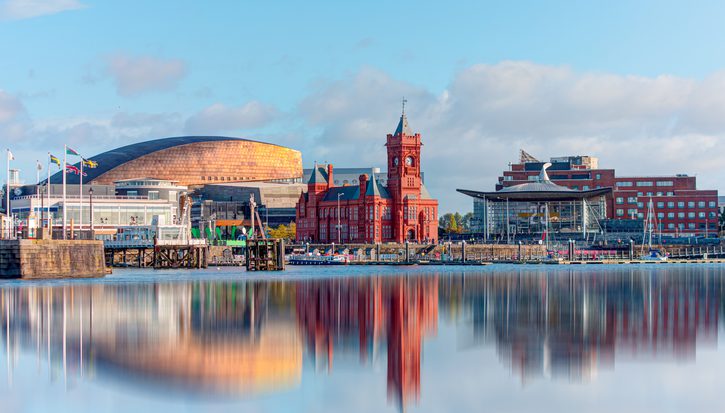‘Levelling up starts with people at the bottom’ – a vision for a levelled up Stoke
Article
Levelling up remains popular and the people think it is much needed. But the agenda is at risk of going nowhere, subsumed by new economic realities and a growing list of crises now facing the latest prime minister, Rishi Sunak. As our previous insights from both Hastings and Redcar show, people want to see policies delivered that reduce inequalities and empower communities. This cannot be timid or top down. It needs to be bold and driven from the bottom up. It was this sentiment that also rang true in Stoke-on-Trent at our latest citizen conversation.
A team of IPPR and IPPR North researchers hosted a two-day participatory research workshop to discuss what citizens from Stoke want for their community and from the levelling up agenda. Breaking up into small groups and armed with flip chart paper, pens, and some imagination, we asked how they viewed their area and what they would like to see in Stoke’s future. We asked about their understanding of levelling up, their likes and dislikes of Stoke, what were the strengths of the community, what challenges they face, and what they want Stoke to be like by 2030.
The discussions that took place amongst the group were grounded by the city’s rich history and unique geography. The people we spoke to were proud of their heritage. The potteries have defined Stoke’s present-day culture and character, and people felt the industry helped to put their city on the map. Stoke is also in close proximity to the Peak District and is blessed with many green spaces and canal walks.
Despite this rich history, Stoke today is the type of place that needs be at the heart of the levelling up agenda. Unemployment is currently above the national average, sitting at over 4 per cent. In recent years, lower paid and more precarious work has proliferated with the growth of warehouse jobs. Despite being home to two universities, Stoke is often squeezed by the much larger and neighbouring economies of Birmingham and Manchester, which can attract graduates with better paid and better paid jobs. The group were clear that whilst Stoke was well connected this could work against them too – that residents would often work or socialise outside of the city. Stoke also fares below the national average when it comes to healthy life expectancy where it is 8 years bellow England’s average for men and 7 for women.
Over the course of the two days that we worked with citizens in Stoke, a number of key themes emerged:
Rebuilding the foundations of the economy – As our participants succinctly put it, ‘levelling up starts with people at the bottom’. It must deliver for those who are currently struggling to make ends meet and for those who have been left down by the country’s current economic model. Addressing poverty, improving housing and ensuring there are good local jobs that are well paid were seen as the foundations for a more progressive levelling up agenda.
‘Levelling up starts with people at the bottom. The people who have nothing. It has to’ – Workshop participant
Thriving town centres as a place for the community to feel proud of – people felt that Stoke, being the combination of many towns, had no one centre. Making sure each of these composite areas has a vibrant high street that offered both services and places to socialise were seen as important for revitalising a sense of community. Examples such as Stoke’s existing culture quarter were suggested as a blueprint that could be replicated in other parts of the city.
“We want Stoke to be put back on the map as a place to visit, not just a place to pass through” – workshop participant
A strong sense of community was seen as vital for catalysing community action, strengthening voice and unlocking greater engagement with local democracy. People wanted more spaces to come together that weren’t transactional or cost prohibitive from entering. The people we spoke to wanted to be involved in local decision making, and in deciding where money is invested. People would also like more information about what was going on locally so that they could get involved when events were taking place, the decline of the local media was keenly felt.
“A happy, prosperous community that takes pride in its heritage and history” Workshop participant's hope for the future of Stoke
Understanding what is fair for Stoke – Many of the participants we spoken to had heard that Stoke was allocated levelling up funding, but they questioned if this was fair compared to other places or relevant to what Stoke had lost previously. They wanted more context, a better understanding of the whole package on offer and a clearer sense of what this added up to for Stoke’s future.
Over the course of our discussions, Stoke’s key asset was aptly summarised by the group – ‘its people’. But at the moment, a lack of opportunity and a lack of focus on stitching together the fabric of community across the city has left people feeling disconnected and dislocated from an economic model that doesn’t seem to be working for them. Good jobs, revived public spaces and a focus on building up communities to have a real stake in their futures are the foundations of building a levelled up Stoke.
Related items

The heart health divide: Cardiovascular inequalities in Wales
Our third blog on cardiovascular disease in the devolved nations turns the spotlight on Wales.
AI's got news for you: Can AI improve our information environment?
Artificial intelligence is rapidly transforming our information environment and becoming a new front door through which the public access the news.
Apples and oranges? Scottish teachers’ pay in international context
This is the first in a series of IPPR Scotland blogs as part of our project on Employment, Productivity and Reform in the Scottish Public Sector. This project is funded by the Robertson Trust.